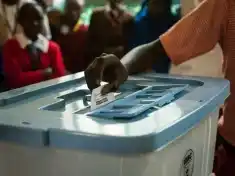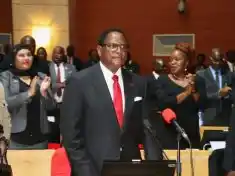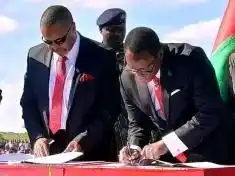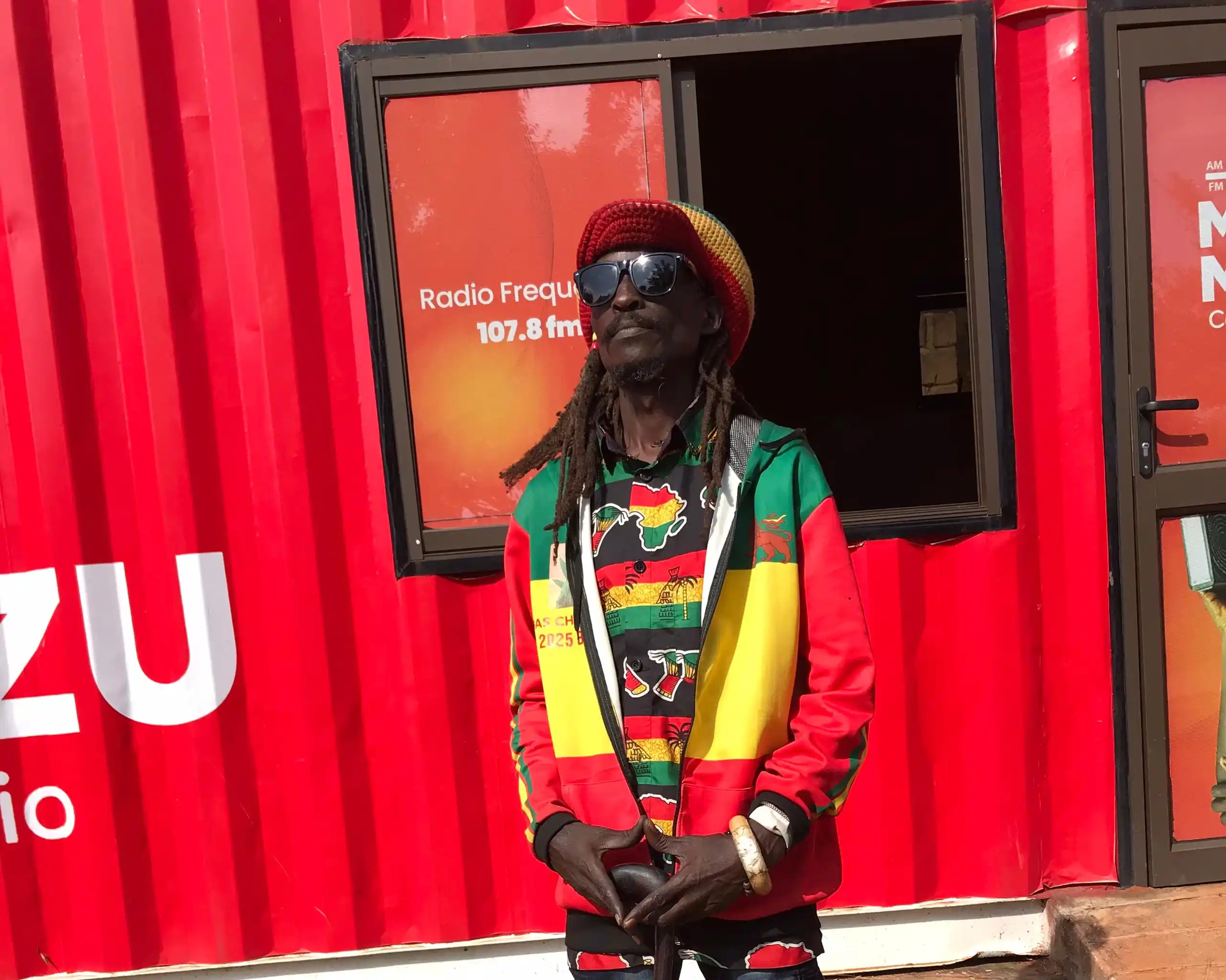As Malawi approaches the next election, the political landscape is charged with anticipation, reminiscent of South Africa’s pivotal moment in March 1994. Back then, a formidable alliance of political parties united to challenge the long-standing National Party. Today, Malawians find themselves in a similar state of euphoria, sensing a potential shift in power.

The recent arrest of Patricia Kaliati, Secretary General of the United Transformation Movement (UTM), sparked widespread protests, with supporters from various opposition parties—DPP, UDF, AFFORD, and PDP—coming together in solidarity.
The vibrant colors of these parties filled the streets of Area 18 and Area 30, symbolizing a united front against the ruling Malawi Congress Party (MCP).
The call for unity among opposition leaders is growing stronger. Figures such as Timothy Mtambo, Peter Mutharika, Enock Chihana, and Atupele Muluzi are increasingly seen as potential allies in the fight against the MCP’s grip on power. The recent joint press briefings demanding reforms in the Malawi Electoral Commission reflect a burgeoning alliance, raising hopes of a single candidate to challenge President Lazarus Chakwera in the upcoming 2025 elections.
Despite Chakwera’s incumbency since 2020, there are signs that his administration is under pressure. The current economic turmoil, marked by fuel shortages and skyrocketing commodity prices, has fueled discontent among the populace. The massive turnout at opposition rallies indicates a growing belief that Chakwera may only serve a single term.
In response to this mounting challenge, Chakwera has taken measures to secure his position. Appointing Annabel Mtalimanja, the daughter of long-serving MCP leader John Tembo, to head the Malawi Electoral Commission is seen as a strategic move to influence electoral outcomes. Additionally, there are reports of attempts to undermine opposition figures through intimidation, defamation, and financial inducements.
Such tactics are not uncommon in the African political landscape. The suppression of dissenting voices is a troubling trend, often escalating as elections approach. The arrest of opposition leaders on dubious charges, as seen in Zambia with Hakainde Hichilema and in Tanzania with Freeman Mbowe, reflects a broader strategy to stifle political competition.
Chakwera’s government appears to be following this playbook, but as history shows, the tides of change can be unpredictable. While arrests and suppression may temporarily hinder opposition voices, the resilience of the populace and the demand for democratic governance can ultimately prevail.
As we move closer to the elections, it remains to be seen whether Chakwera can maintain his hold on power amidst growing dissent. The sentiments of the electorate are shifting, and change, once set in motion, is a force that cannot easily be contained. The future of Malawi’s political landscape hinges on the unity and resolve of its opposition, and the upcoming months will be crucial in determining whether Chakwera’s administration will endure or become a chapter in the annals of Malawi’s democratic journey.








0 Comments